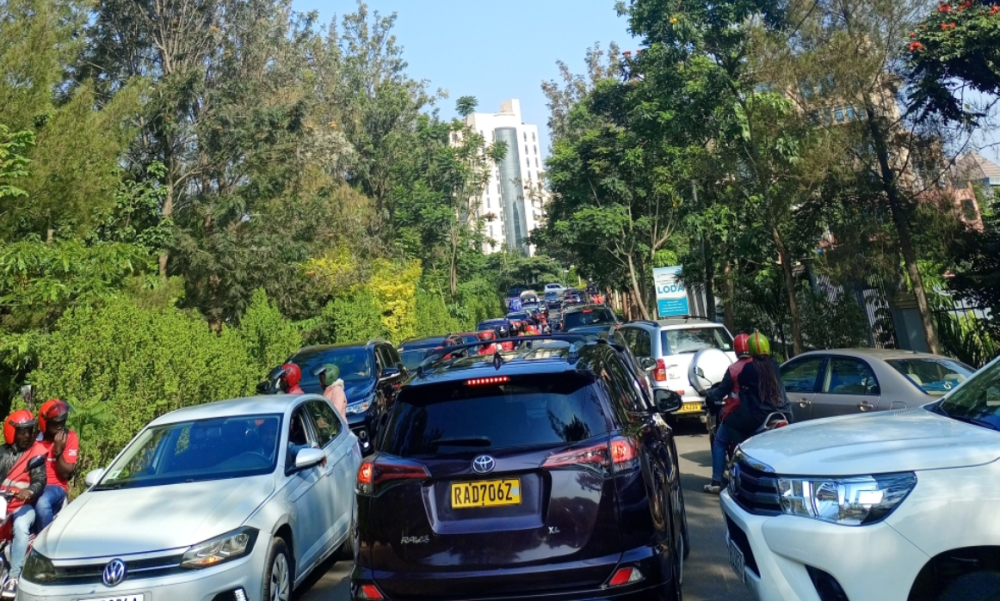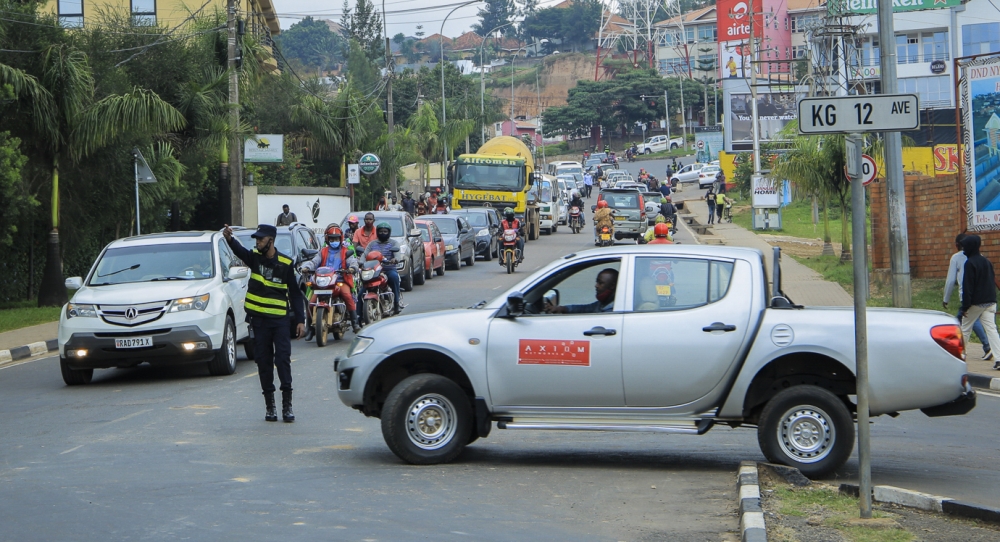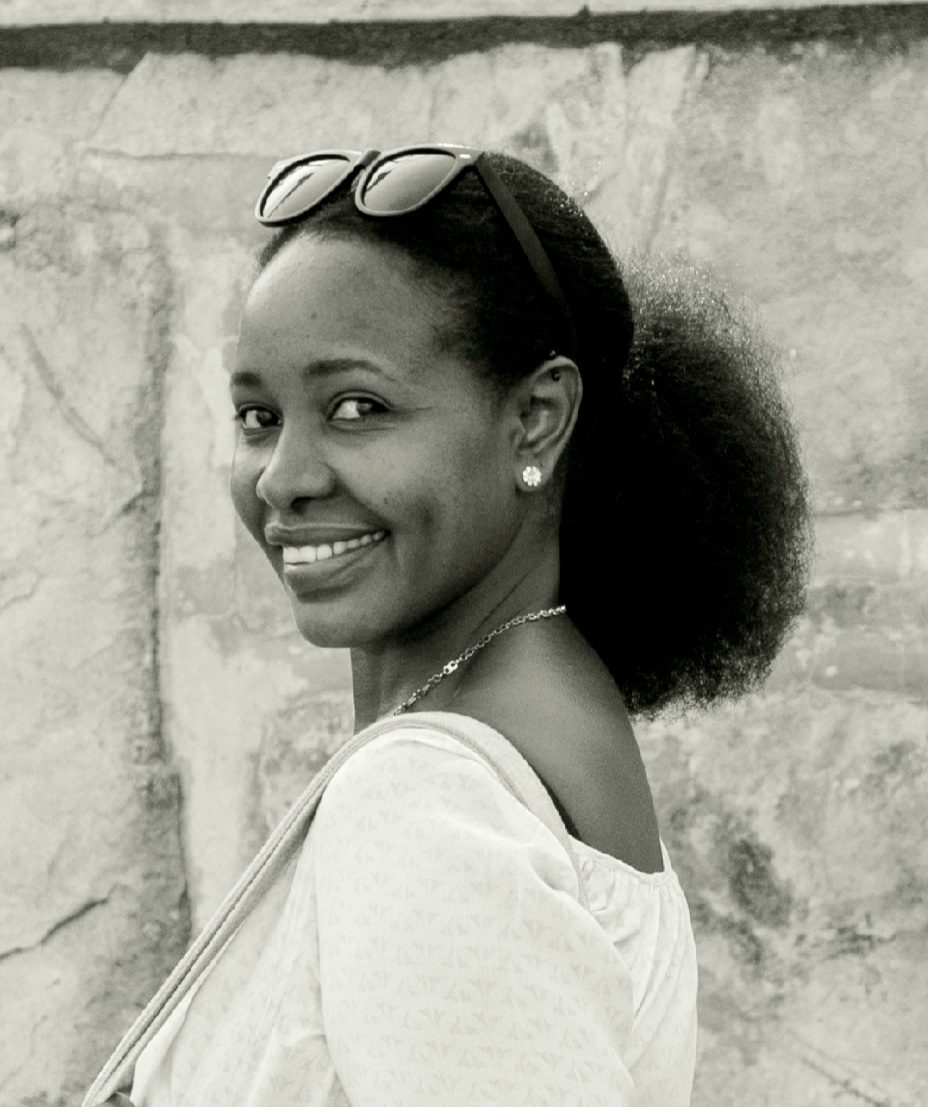

Following the reopening of schools on September 9, traffic jams, especially during morning and evening hours have significantly increased, with many city dwellers finding themselves caught up in traffic.
Residents of Rusororo, Kanombe, Kimironko and other parts such as Kabeza, are increasingly finding themselves stuck in traffic for longer hours, particularly those heading to the Central Business District.
Several accidents have been reported in the media, with some attributing the traffic incidents to impatient and indiscipline drivers who try to overtake or take shortcuts to beat the congestion but instead end up causing accidents.
For some residents of the city like Claudine Izere, who works in a shop in town but has to commute from Kabuga, says the time she spends on the road has tremendously increased, spending more than two hours on the road, to and from home.
"For me to get to town early, I have to leave home as early as 5:30am to avoid the queue and traffic, which is too early, but in the evening, I also spend more than one hour and a half, from town to Remera and then take another bus to Kabuga,” she says.


While she spends less time on the queue waiting for the bus, given that the number of buses increased, Izere laments about the long time she spends on the road.
The intensity of the traffic jam increased when the government took a decision to adjust the time employees report to work from 7a.m to 8a.m, but with a flexible hour between 8a.m and 9a.m during which people can work remotely.
Similarly, school hours were adjusted to classes officially starting 8:30a.m, instead of the previous 7a.m, which means that people going to work and parents or guardians taking children to school meet on the road at the same time.
Several suburbs, especially those which host schools, such as Nyarutarama, Kicukiro-Kagarama, Kiyovu and Remera, among others, experience more traffic than others, as parents pick and drop children.
Other areas common with clogging include Giporoso, Gisimenti, Kimironko, Kicukiro-Rwandex and the road from Giporoso to Mulindi, which is popular with long distance trucks, among other locations.
In these locations, traffic police get busier during peak hours, directing and ensuring that traffic moves smoothly, to avoid gridlocks which can possibly frustrate those heading to work or school.
ACP Boniface Rutikanga, Rwanda National Police (RNP) Spokesperson, says while there is an upsurge in traffic, from their side, that is not something new.
"It is common when students are back to school and during entire school periods. The City of Kigali experiences traffic jams during peak hours. Parents dropping students at school and other commuters find themselves meeting on the road at the same time at the peak hours,” the Police Spokesperson told The New Times.
Rutikanga explains that traffic jam management is subject to many aspects, and some of them are not part of policing responsibilities.
"Nevertheless, traffic police concentrate its presence on intersections where there is potential to attract traffic congestion to facilitate flow of traffic,” he added.
In regard to road traffic accidents, Rutikanga explained that they might not necessarily be linked to traffic congestion but rather the recklessness of individual drivers.
"In such situations, traffic moves at a low speed, which minimises the chances of accidents. Drivers&039; individual behaviour largely contributes to road accidents,” he explains.
For some, the fast-growing traffic congestion is threatening to put Kigali among other cities in the region and continent which experience heavy traffic.
Widening roads to ease traffic
It is a challenge city authorities are aware of and are working tirelessly to address.
Emma Claudine Ntirenganya, Director General in Charge of Communication and Education, at the City of Kigali, says that it is true traffic jams increase when schools reopen.
"It is even more intense on the day before schools reopen as students who study in upcountry destinations head out, either with public means or with private means,”
"We work closely with the Ministry of Education to ensure that the movement is smooth but definitely we still have those parents who move to and from schools on a daily basis. That daily congestion can be expected,”
"In regard to traffic congestion in the city, the City of Kigali has a plan to widen several key roads entering or exiting the city, such the road from Prince House to Giporoso and Masaka,” Ntirenganya said.
Other roads to be expanded include the roads leading to Rwamaga and to Nyamata in Eastern Province as well as the road leading to the Southern Province via Ruyenzi, Kamonyi and Bishenyi as well as downtown Nyabugogo, to ensure smooth flow of traffic.
"We are aware of heavy traffic building up during peak hours. As I speak, work on these roads have started. We are looking at ways of how public hours will continue to move even during peak hours, so that people don’t have to wait for long to get a bus or to get home or to work,”
Among other things, Ntirenganya said that once the roads are expanded, dedicated bus lanes will be introduced as well as ‘smart traffic lights’, which will be prioritising parts of the road which are likely to be congested.
Ntirenganya said that the city is also working on many other neighbourhood roads that can help to decongest the main roads, but also encourages people, particularly those with individual cars, to consider alternative routes, rather than the main roads.
Similar advice is passed on by ACP Rutikanga, who says that people using alternative routes would not only help decongest main roads during peak hours, but also the work of traffic police.
"In the CoK, there are many alternative roads that are not utilised by commuters. We encourage drivers to always find alternative roads to avoid getting stuck in traffic jams,” the Police Spokesperson says.
To avoid getting stuck, Ntirenganya also advises road users, especially parents and workers, to always plan their journeys ahead of time to avoid traffic congestion, because that also helps to reduce the number of people on the roads.
The early morning and late afternoon hours are the worst traffic times in most areas, because that is when most people are on the road commuting to and from work or school.
City authorities encourage road users to also use routes that are clearer instead of using the ones that are busy to avoid traffic congestion.
Below are some tips that can help you beat traffic
Waking up early
While morning sleep is tempting, waking up and leaving home early is the magical trick to beat traffic snarl-ups, because you’ll be ahead of most road users. By waking up early and perhaps leaving office on time, you avoid the worst traffic times in most locations, because that is when most people are on the road commuting to and from work/school.
If possible, avoid driving during these times. Leaving just a little bit earlier or later (during evening hours) can help you stay clear of tailgating traffic or at least avoid finding yourself in the most congested of places. It will also help you save fuel during these not-so-easy economic times.
Save time on alternate routes
Using alternative routes saves you time and resources. If you live in or around Kigali and know the city well, there is always an alternative route everywhere you look. Yet, most people somehow stick to the main roads even if they know that they are a red flag for traffic jams because everyone seems to be using the main road.
The government has constructed many connecting and alternative routes around the city which you can use to beat traffic. By more people using the alternative routes, we can ensure that even the main roads are not congested.
GPS mapping helps
Most people may not know this but Rwanda is among few African countries with the most efficient road systems, with most roads clearly marked with names and coordinates.
This means that it is easy to use GPS to know which roads to use at what time. Many GPS systems have built-in traffic flow monitoring and they can alert you when a route is affected by a traffic jam.
Some can even automatically change your route to a clearer one. Check the instructions for your model to see what capabilities it has, and how to set up the traffic monitoring features. Yes, in countries where road markings are not clear, chances of being misled by GPS are high, but not in Rwanda.
Using other means
It might be the most unpopular option but using other means of transport is another option to beat jam. A motorcycle, a bicycle or even public means, where possible. If you don’t have to drop off a child to school or someone to work, you can definitely consider this as an option. If many people can do that, it means there will be fewer cars on the road.
And that comes with a bonus of knowing that you’re potentially contributing to green mobility too.


